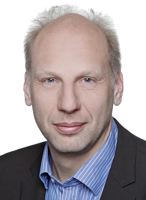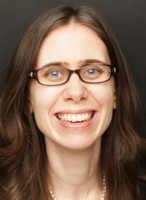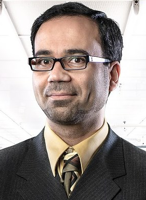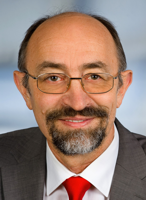Program
The program of the conference can be found at https://ifac.papercept.net/conferences/conferences/MAMO18/program/.
Plenary talks
The following plenary talks were held at MATHMOD 2018
The Day After Optimal: Mathematical Modelling for Modern Logistics
Speaker: Prof. Dr. Stefan Nickel, Karlsruhe Institute of Technology, Germany
Operations Researchers support Supply Chain Management and Supply Chain Planning by developing adequate mathematical optimization models and providing suitable solution procedures. In this talk we discuss what adequate could mean. Therefore, we may ask several questions concerning “optimality” in Supply Chain Planning under causal and temporal uncertainty: What is an optimal solution? When is it optimal? For how long is it optimal? How should the design of a supply chain be changed when conditions and requirements ask for new structures? In particular, we discuss new approaches to Supply Chain Planning in order to give an optimal transformation from an initial solution over multiple periods to a desired one rather than just specifying an optimal snapshot solution. Time and uncertainty are the factors triggering the whole discussion. In particular, several flaws often found when dealing with these factors result in so-called “time traps”. We look at the impact of recent technological developments like the Internet of Things or Industry 4.0 on operational supply chain planning and control, and we show how online optimization can help to cope with real-time challenges. Moreover, we re-coin the concept of risk in the realm of Supply Chain Planning. Here the question is how to measure supply chain specific risks and how to incorporate them “adequately” into mathematical models.
About the speaker

Stefan Nickel is a full professor at the Karlsruhe Institute of Technology – KIT (Germany) and one of the directors of the Institute of Operations Research. He obtained his PhD in mathematics at the Technical University of Kaiserslautern (Germany) in 1995. From 1995 to 2003 he was assistant and associate professor in mathematics at the Technical University of Kaiserslautern. After a full professor position at the Saarland University (Chair of Operations Research and Logistics) from 2003 to 2009, he joined the Karlsruhe Institute of Technology as the Chair in Discrete Optimization and Logistics in April 2009. Since 2014 he is the dean of the Department of Economics and Management at KIT. Stefan Nickel was also member of the scientific advisory board as well as of the management board of the Fraunhofer Institute for Applied Mathematics (ITWM) in Kaiserslautern from 2004-2016. Since 2011 he additionally holds the positions of one of the directors of the Karlsruhe Service Research Institute (KSRI) and of the Research Center for Computer Science (FZI). From 2006-2015 he was editor-in-chief of Computers & Operations Research and is still consulting editor. Moreover, he is editor-in-chief of Operations Research for Health Care. He has coordinated the Health Care working group within the German OR society (GOR) and has been the president of GOR from 2013-2014. Stefan Nickel has authored or co-authored 5 books as well as more than 100 scientific articles in his research areas Locational Analysis, Supply Chain Management, Health Care Logistics, and Online Optimization. He has been awarded the EURO prize for the best EJOR review paper (2012) and the Elsevier prize for the EJOR top cited article 2007-2011. In addition he conducted several industry projects with well-known companies such as BASF, Lufthansa, Miele, or SAP.
Big Network Data
Speaker: Prof. Sofia Olhede, University College London, United Kingdom
Large networks have become a ubiquitous form of data. Their analysis is complicated by the fact that intrinsic permutation invariance needs to be built in our understanding of these objects, as well as accounting for computational tractability. Much attention has focused on simple models of such data, but this talk will cover recent innovations that characterise network structure, focussing on identifying scales of importance and significant forms of network heterogeneity.
About the speaker

Sofia is a professor of Statistics at University College London since October of 2007. She also holds an honorary chair in the UCL computer science department. Having obtained her MSci in Mathematics at Imperial College London in August of 2000, she was awarded the PhD in Mathematics in January of 2003. Her thesis was: Analysis via Time, Frequency and Scale of Nonstationary Signals, and her advisor was Professor Andrew Walden. In 2002 she became a Lecturer in Statistics in the Mathematics Department at Imperial College, and was promoted to Senior Lecturer in 2006. She is currently associate editor for J. Royal Statistical Society (b) and IEEE Trans on Signal Processing. She is the Royal Statistical Society Isaac Newton Institute correspondent and a member of the ICMS programme committee. Her research interests are non-stationary and non-linear time series and random fields, time-scale and time-frequency inference, multiscale processing and compressed sensing with applications in finance, oceanography and biomedical signal processing.
Needle-Tissue Interaction Modeling in Needle-Based Medical Interventions
Speaker: Prof. Mahdi Tavakoli, PhD, University of Alberta, Canada
Minimally invasive percutaneous needle insertion has gained increasing attention over the past decade and has become part of routine clinical practice for medical procedures such as tissue sampling, pinpoint drug delivery, permanent brachytherapy, radiofrequency and microwave ablation of liver, lung, and kidney, and regional anaesthesia. The success of these procedures heavily relies on accurate guidance of the needle toward an inner body target location. In practice, during needle insertion, needle-tissue interaction causes the needle to deviate from its desired trajectory and, therefore, deflect away from the path towards the target location. Inaccurate needle steering can compromise the effectiveness of the treatment and lead to significant side effects for the patient. This talk provides an overview of various needle-tissue interaction models that have been developed in order to predict needle deflection as it is inserted into soft tissue and allow for intra-operative correction of the needle tip trajectory through feedback control.
About the speaker

Mahdi Tavakoli is a Professor in the Department of Electrical and Computer Engineering, University of Alberta, Canada. He received his BSc and MSc degrees in Electrical Engineering from Ferdowsi University and K.N. Toosi University, Iran, in 1996 and 1999, respectively. He received his PhD degree in Electrical and Computer Engineering from the University of Western Ontario, Canada, in 2005. In 2006, he was a post-doctoral researcher at Canadian Surgical Technologies and Advanced Robotics (CSTAR), Canada. In 2007-2008, he was an NSERC Post-Doctoral Fellow at Harvard University, USA. Dr. Tavakoli’s research interests broadly involve the areas of robotics and systems control. Specifically, his research focuses on haptics and teleoperation control, medical robotics, and image-guided surgery. Dr. Tavakoli is the lead author of Haptics for Teleoperated Surgical Robotic Systems (World Scientific, 2008).
Framing, Identification and Simulation of ‘Messy’ Hydrological Systems
Speaker: Prof. Dr. Günther Blöschl, TU Wien, Austria
Modelling the flow of rivers in the landscape is needed for environmental planning, such as flood risk design, and real time control, such as operation of hydropower plants. Unlike many other systems in engineering, the water flow in the landscape is the compound result of both natural and anthropogenic system components. Natural components, such as the flow in the subsurface, are difficult to specify due to the vast heterogeneity of the Earth system. Anthropogenic components are difficult to capture due to multiple human actions (e.g. operation of hydraulic gates) which are not usually known at the scale of river basins. These issues make the modelling of river flow a ‘messy’ problem. This presentation will outline advances in framing such systems in terms of tradeoffs between model complexity and identifiability, given the information available in any one case. The presentation will also present strategies to parameter estimation of high resolution, hydrological models. The role of soft information in constraining ‘messy’ problems will be highlighted. The concepts will be illustrated by examples from real time flood forecasting for the Danube and tributaries, and flood risk estimation for Austria.
About the speaker

Günter Blöschl is a Professor of Hydrology and Water Management at the Vienna University of Technology where he is heading the Institute of Hydraulic Engineering and Water Resources Management. His research interests revolve around understanding hydrological processes and predicting hydrological risk. He is a strong advocate of bridging the gap between fundamental process understanding and the practice of water resources management. He designed an online system of flood risk mapping in Austria and the flood forecasting system for the Upper Danube River. The German flood design guidelines are based on his concept of Flood Frequency Hydrology. Recently he was awarded an ERC Advanced Grand on River Flood Changes. The fruits of his research (over 300 articles and about 20000 Google Scholar citations) have been recognised by his receipt of numerous honours including the Horton Medal from the American Geophysical Union. He is an Editor of Water Resources Research and other journals, Corresponding Member of the Austrian Academy of Sciences and Member of the German Academy of Science and Engineering. He chairs the Scientific Advisory Council of the German Federal Institute of Hydrology, was Past President of the European Geosciences Union, and is the incoming President of the International Association of Hydrological Sciences.






